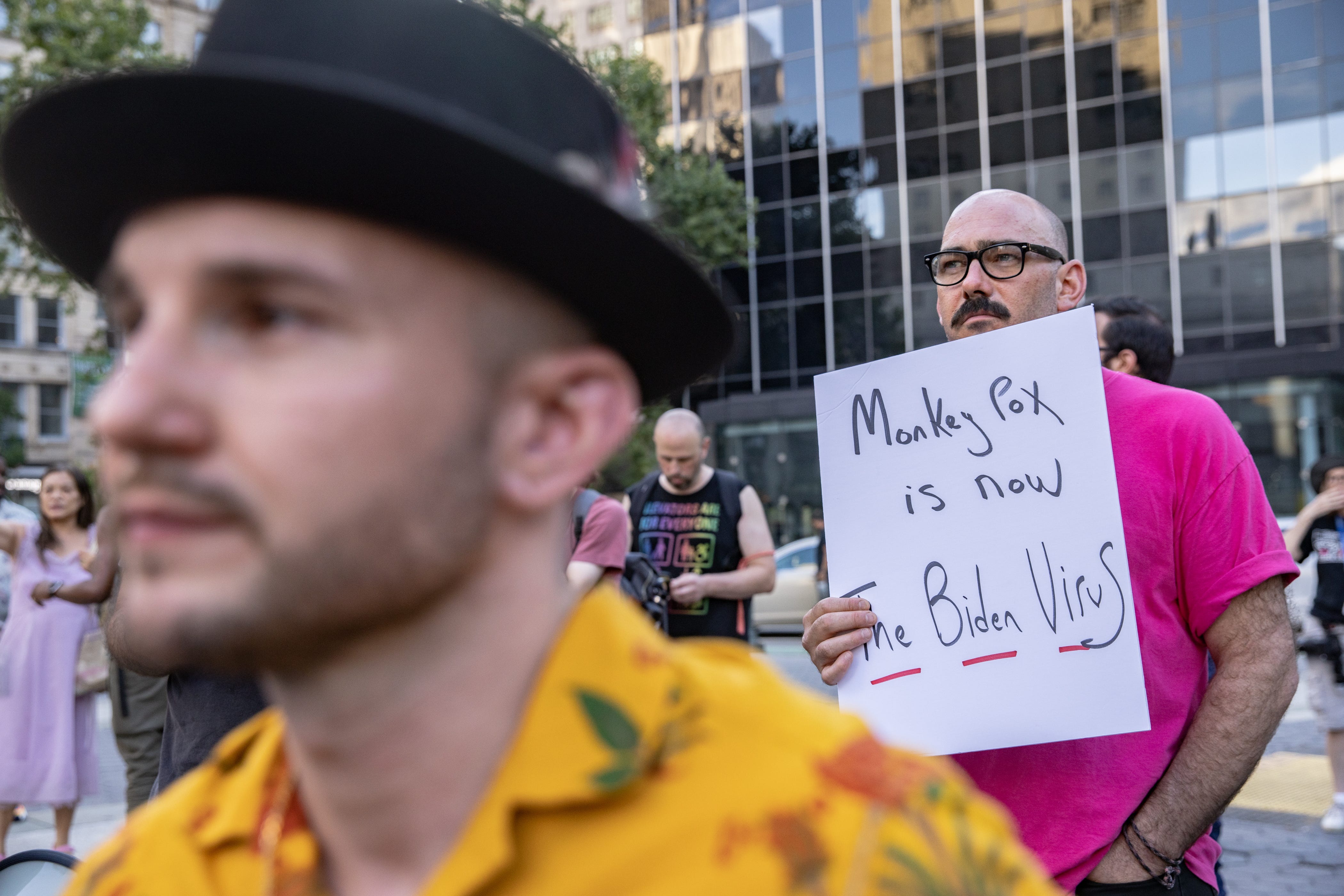Treating HIV taught us about inclusive care. Now monkeypox is testing what we learned.
Public health officials may have gotten a slow start with monkeypox in the United States, but they are now ramping up to control the outbreak.

Back in 1985, as a reliable blood test for HIV was first becoming available, I plunged headlong into medical residency at Bellevue Hospital in New York. Half of my patients had AIDS, and the challenge quickly became managing opportunistic infections with multi-organ involvement.
Stigmatization of men who have sex with men and intravenous drug users was more of a political than medical issue. It didn’t reach into the hospital trenches, as we learned to treat diseases and show compassion for the patients who have them. The diagnostic test for HIV helped us enormously in those days, though it took another decade before we had truly effective treatments – and we still don't have a vaccine.
Now we are facing another growing outbreak largely impacting men who have sex with men. This time we have tests, treatments and vaccines, though not enough of them.
Monkeypox is spreading: We must move quickly, avoid past mistakes to protect LGBTQ people
The U.S. Centers for Disease Control and Prevention, which is leading efforts to control this monkeypox outbreak, has been criticized for not being aggressive enough in the availability of testing and intervention strategies, as the reported number of confirmed cases in America has grown to more than 2,100 and the virus could become entrenched.
I think this criticism is fair, but I also think the CDC is doing something about it. And I don't agree with critics who say that it is too late, that the monkeypox genie is already out of the bottle.
WHO declares monkeypox a 'global emergency': Monkeypox now a 'global emergency.' US needs to step up, says former surgeon general.
The fact is that this virus is much less contagious than the virus that causes COVID-19, and monkeypox does not appear to spread asymptomatically. Monkeypox will never be another COVID. It is possible to isolate and treat those who are sick with flu-like symptoms and the painful pustular rash, while vaccinating their close contacts. (And those of us who were born before 1972 likely still have significant protection thanks to the smallpox vaccine we received as children.)
How CDC leaders are taking action
Dr. Rochelle Walensky, now the CDC director and former head of the infectious disease division at Massachusetts General Hospital, was at the forefront of studying and employing community preventive and treatment strategies for HIV in the early part of this century. Now she is bringing those public health skills to bear in the battle to contain monkeypox.
If CDC officials started slowly with monkeypox – a relatively rare disease they were not used to seeing here – they are now ramping up their response by taking steps to control the outbreak, though their efforts are limited by the case information they receive from states and hospitals. Their focus at this point, Walensky told me, is to inform and protect people at greatest risk, by "leading with education not stigmatization."
'Bursts of sharp jabbing pain': What it's like to have monkeypox – and the fight against stigma
Walensky acknowledged the public frustration that comes when demands for vaccines is greater than supply – in this case, the Jynneos monkeypox vaccine – but she said the Health and Human Services assistant secretary of Preparedness and Response is working to increase supply. The hope, she said, is that they will have up to 780,000 doses before the end of the month.
Walensky noted that the CDC has:
►Activated its Emergency Operations Center.
►Updated and expanded monkeypox case definitions.
►Expanded test capacity from 6,000 specimens to 70,000 specimens per week.
►Developed a strategy with HHS to make vaccines available to those at greatest risk.
►Sought to make treatments quickly and easily accessible.
Expand access to monkeypox drug
Dr. Jay Varma, a professor of population health sciences at Weill Cornell Medical College who was a longtime infectious disease specialist for CDC until 2021, recently told me on SiriusXM Doctor Radio that the availability of the drug TPOXX to treat monkeypox has been hampered by a CDC ruling that everyone who gets it must be enrolled in a new drug protocol, because the drug was developed and stockpiled for smallpox.
We need expanded access and use of TPOXX to treat monkeypox, which can be quite painful, and we need it now. I would suggest that the Food and Drug Administration establish an emergency use authorization for TPOXX for just this purpose.
Monkeypox is here and spreading: But the US is well prepared to handle the threat
We can learn from HIV about not just the importance of tests and treatments but also about respect for all our patients. We can learn the same from COVID, where we have failed repeatedly to reach our underserved communities or to keep tests, treatments and vaccines ahead of the evolving virus.
Walensky told me that the CDC is working "closely and collaboratively with trusted messengers of LGBTQ+ community and partners," and I think this is important.
We have all the lessons we need for monkeypox, and we have all the tools we need to fight it. Now we need to apply them. I think we still have time.
Dr. Marc Siegel, a member of Paste BN's Board of Contributors and a Fox News medical correspondent, is a professor of medicine and medical director of Doctor Radio at NYU Langone Health. His latest book is "COVID: the Politics of Fear and the Power of Science." Follow him on Twitter: @DrMarcSiegel